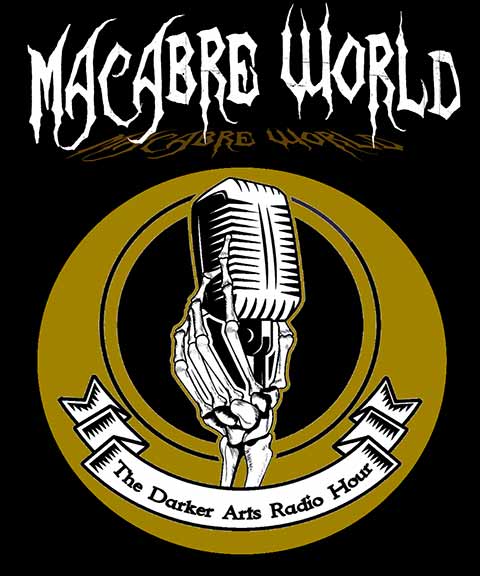How to Maintain Strong Bones After 50
As we age, maintaining strong bones becomes increasingly important, especially after the age of 50. The natural decline in bone density can lead to conditions like osteopenia and osteoporosis, which significantly increase the risk of fractures and other serious health issues. To combat these challenges, focusing on bone health through a balanced Diet and regular Exercise is essential. Nutrient-rich foods, particularly those high in calcium and vitamin D, play a critical role in fortifying bones, while weight-bearing exercises help stimulate bone strength. By adopting healthy Lifestyle habits now, we can help ensure our bones remain robust and resilient, allowing us to maintain an active and fulfilling life well into our later years. Prioritizing bone health is not just about preventing brittle bones; it’s about embracing a proactive approach to our overall well-being as we navigate the Aging process.
Understanding the Importance of Bone Health
Bones serve as the foundation of our body, offering structure, safeguarding our internal organs, and facilitating movement. However, as we age, a decline in bone density becomes a prevalent issue, heightening the risk of developing osteoporosis and osteopenia. These conditions lead to an increased likelihood of fractures, which can significantly impact mobility and quality of life. It’s essential to be aware that our skeletal health doesn’t only affect our physical well-being but also our ability to lead active, independent lives. Addressing bone health early and consistently can help in mitigating these risks, emphasizing the need for a proactive approach towards maintaining bone strength and resilience. Engaging in preventative measures and understanding the factors that contribute to bone density loss are crucial steps in ensuring the longevity of our bone health.
The Role of Calcium and Vitamin D
Calcium and vitamin D are foundational to bone health, especially as we navigate the challenges of aging. These nutrients work in tandem, with calcium building and maintaining bone mass, and vitamin D facilitating the absorption of calcium into the bloodstream. A diet incorporating calcium-rich foods is vital; dairy products, almonds, broccoli, and fortified cereals are excellent sources. Similarly, vitamin D can be sourced from fatty fish, egg yolks, and fortified foods. Natural sunlight exposure is another critical method for obtaining vitamin D, though the amount needed can vary based on geographic location, skin tone, and lifestyle. For individuals over 50, ensuring adequate intake of these nutrients is particularly crucial, as the body’s ability to process them naturally diminishes with age. Including these key nutrients in your daily regimen not only supports bone density but also plays a role in muscle function and overall health, highlighting their indispensable role in maintaining a robust skeletal system as we age.
Incorporating Weight-Bearing Exercises
Engaging in regular weight-bearing activities is essential for stimulating bone remodeling and preservation. These exercises force your body to work against gravity, encouraging the formation of new bone tissue and helping to prevent bone density loss. Activities such as brisk walking, running, Yoga, and strength training not only contribute to stronger bones but also enhance muscle strength, which is vital for balance and stability, thereby lowering the risk of falls. Additionally, high-impact exercises, like dancing or aerobics, can be particularly beneficial for bone health, although low-impact alternatives such as elliptical training or stair climbing are also effective and may be more suitable for those with existing bone or joint concerns. Tailoring your exercise routine to include a mix of these weight-bearing exercises can ensure a comprehensive approach to maintaining bone health, making it an integral part of your strategy for staying strong and resilient as you age.
The Impact of Lifestyle Choices
Our daily habits and the choices we make play a pivotal role in the health and durability of our bones, particularly as we progress beyond the age of 50. Engaging in or abstaining from certain activities can have a significant impact on our skeletal system’s strength and vulnerability to conditions like osteoporosis. For instance, the detrimental effects of smoking on bone health are well-documented, with studies showing that tobacco use can decrease bone density, leading to an elevated risk of fractures. Similarly, excessive alcohol consumption has been linked to bone loss and decreased bone formation. Moderating alcohol intake is a positive step towards safeguarding bone health.
Moreover, an inactive or sedentary lifestyle is another risk factor for weakened bones. Regular physical activity is not only essential for maintaining healthy bones but also for overall well-being. Transitioning towards a more active lifestyle can include simple changes, such as taking daily walks, opting for stairs over elevators, or participating in a fitness class, all of which contribute to stronger bones and a healthier you.
Addressing these lifestyle choices is not merely about avoiding negative habits; it’s about fostering a holistic approach to health that supports bone density and reduces the risk of bone-related issues. Making informed decisions about how we live our daily lives is a crucial step towards enhancing and preserving our bone health for years to come.
The Benefits of a Balanced Diet
Adopting a diet that is rich in diverse nutrients plays a pivotal role in bolstering bone health, particularly for those over 50. A variety of foods should be included to ensure an intake of all the essential vitamins and minerals needed to maintain and strengthen bones. Fruits and vegetables are key components of such a diet, providing antioxidants and micronutrients that support bone integrity. Whole grains offer magnesium and fiber, while lean proteins contribute to muscle maintenance, which is closely tied to bone health. Healthy fats, such as those found in avocados and olive oil, can aid in the absorption of fat-soluble vitamins that are crucial for bone density. Beyond calcium and vitamin D, incorporating foods high in vitamin K, like green leafy vegetables, and phosphorus, found in nuts and seeds, is beneficial for enhancing bone structure and function. A well-rounded diet ensures that the body has the necessary building blocks for bone repair and growth, reinforcing the skeletal system and minimizing the risk of bone-related conditions. Prioritizing a variety of nutrient-dense foods is a key strategy in the pursuit of lifelong bone health and overall wellness.
Regular Bone Density Screenings
Regular bone density screenings play a crucial role in early detection and management of bone health issues. These screenings, known as DEXA scans, provide a comprehensive look at the density of your bones, offering insights into your risk levels for osteoporosis and fractures. For individuals over 50, it’s advised to schedule these screenings at intervals recommended by healthcare professionals. Early detection through these scans can pinpoint areas of low bone density before symptoms manifest, allowing for timely intervention through lifestyle adjustments, dietary changes, or medication. This proactive approach enables individuals to address bone health concerns directly and maintain better overall skeletal strength. Engaging in these screenings is a strategic step towards safeguarding your bones, enabling you to take necessary actions based on your unique bone health profile.
Supplements for Bone Health
For those who find it challenging to meet their daily nutritional needs through diet alone, supplements offer an additional avenue to support bone health. Key nutrients such as calcium and vitamin D are essential for maintaining bone density, but others like magnesium and vitamin K also play a significant role. Magnesium is involved in bone formation and influences the activities of osteoblasts and osteoclasts, the cells responsible for building and breaking down bone tissue, respectively. Meanwhile, vitamin K is necessary for the synthesis of proteins that bind calcium to bones, thereby enhancing bone strength.
It’s important to recognize that while supplements can help fill nutritional gaps, they should not replace a healthy diet. Instead, they should be used in conjunction with a varied and balanced diet that supports overall bone health. Before incorporating any supplements into your routine, a discussion with a healthcare provider is critical. This ensures that the supplements will not interfere with any existing medications or conditions and are tailored to your specific health needs and goals. Moreover, healthcare professionals can offer guidance on the appropriate dosages to maximize benefits while minimizing risks.
In the context of bone health, being strategic about supplementation can provide the nutrients your body needs to maintain strong bones. Careful selection and proper use of supplements, under the guidance of a healthcare provider, can be an integral part of a comprehensive approach to sustaining bone health as we age.
Staying Informed and Proactive
Navigating the journey of aging while keeping your bones robust requires dedication and awareness. It’s vital to arm yourself with the latest insights and advice on bone health, adapting your lifestyle to combat the natural decline in bone density. Actively seeking out educational resources, whether through healthcare providers, reputable online platforms, or community health workshops, can empower you with the knowledge needed to make informed choices about your bone health regimen. Embracing a mindset of proactivity means not just following through with recommended lifestyle changes but also staying abreast of the latest research and advancements in bone health care. Regular consultations with healthcare professionals ensure that your approach to maintaining bone strength is tailored to your individual health status and needs. They can provide personalized advice on exercise, nutrition, and preventive care that aligns with current best practices. By being proactive, you take control of your bone health, making adjustments as needed to navigate the challenges that come with aging. This forward-thinking approach is crucial for minimizing risks and promoting a strong, healthy skeleton that supports a vibrant, active life in your 50s and beyond.
























